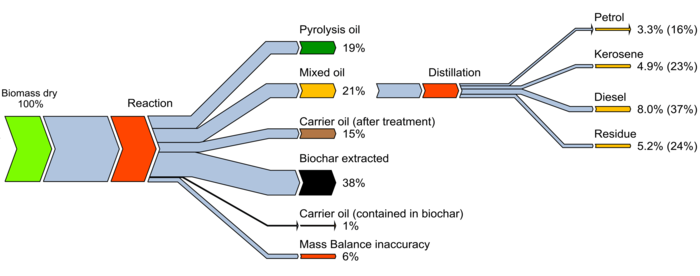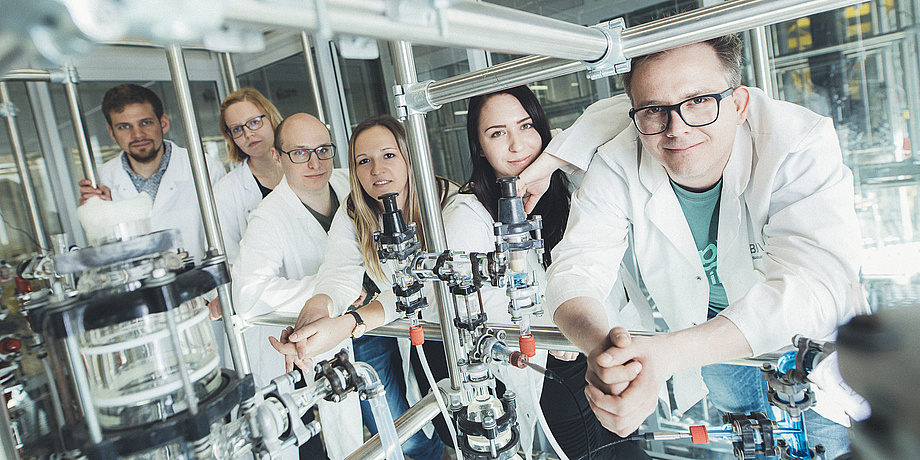Nikolaus Schwaiger has been involved in the development of the process since the beginning: from small-scale experiments, one of which was his doctoral thesis, to the OMV pilot plant in Schwechat, which tested the innovative biogenous diesel production at a large scale.
Pioneering technology
The research group led by Nikolaus Schwaiger at TU Graz is the only one in Austria working on the direct biomass-to-liquid generation of second-generation biofuels – in other words, into biofuels which are not produced from food plants, such as palm oil or rapeseed oil. The process is an important contribution towards climate-friendly transportation and compliance with the EU regulation which stipulates that by 2020, 10 per cent of the energy used in transport in Europe has to come from renewable sources. On top of this, it would lower Austria’s dependence on crude oil imports. The value added from the production of biogenic fuels will remain in Austria and not be handed over to the oil-exporting countries.Conventional production processes with value added
Biofuels are obtained by using the infrastructure already available in the oil industry. “Simply put: in the bioCRACK process solid, oxygen-rich, non-edible biomass – for instance wooden waste, wheat straw or reeds – is heated in a liquid heat carrier without oxygen and broken down,” says Nikolaus Schwaiger. The liquid heat carrier is vacuum gas oil, an intermediate product of mineral oil refining. The vacuum gas oil and biomass are “cracked” at temperatures between 350 and 400 degrees Celsius – in other words, the macromolecules are broken down into smaller fragments. First and foremost, bioCRACK oil is produced from cracked vacuum gas oil and decomposition products of biomass. From this, a fuel of which 10 per cent has been biogenically produced can be obtained and directly further processed in a refinery. 15 per cent of the biogenic carbon dissolves in the non-cracked carrier oil. This can be upgraded into fuel in the refinery in a further process step.
This research area is anchored in the Field of Expertise “Mobility & Production”, one of five research foci of TU Graz.

